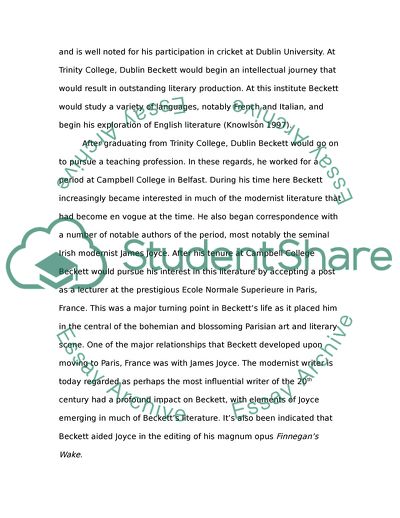Cite this document
(Samuel Beckett Essay Example | Topics and Well Written Essays - 1250 words, n.d.)
Samuel Beckett Essay Example | Topics and Well Written Essays - 1250 words. https://studentshare.org/visual-arts-film-studies/1754787-samuel-beckett
Samuel Beckett Essay Example | Topics and Well Written Essays - 1250 words. https://studentshare.org/visual-arts-film-studies/1754787-samuel-beckett
(Samuel Beckett Essay Example | Topics and Well Written Essays - 1250 Words)
Samuel Beckett Essay Example | Topics and Well Written Essays - 1250 Words. https://studentshare.org/visual-arts-film-studies/1754787-samuel-beckett.
Samuel Beckett Essay Example | Topics and Well Written Essays - 1250 Words. https://studentshare.org/visual-arts-film-studies/1754787-samuel-beckett.
“Samuel Beckett Essay Example | Topics and Well Written Essays - 1250 Words”. https://studentshare.org/visual-arts-film-studies/1754787-samuel-beckett.


